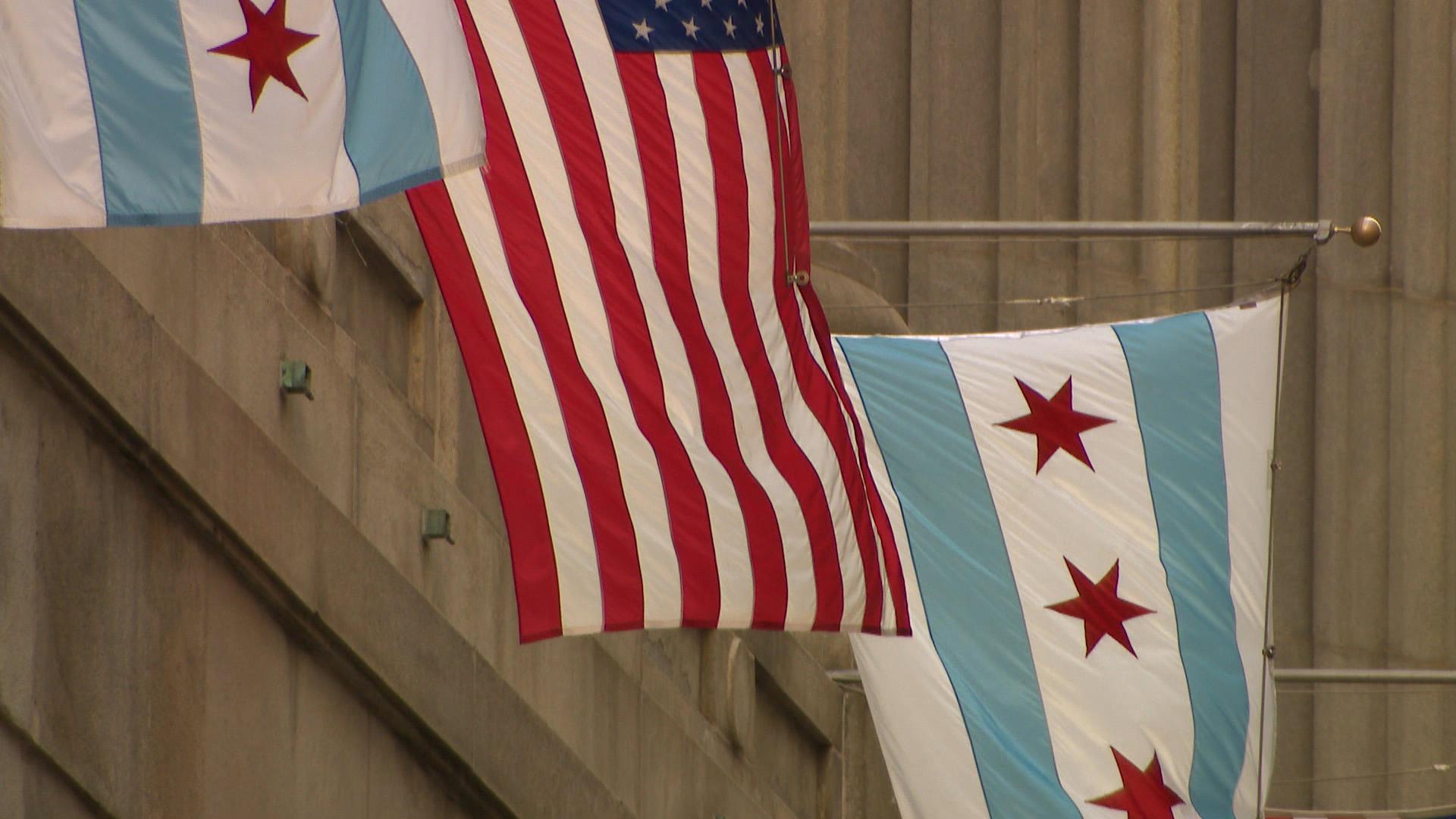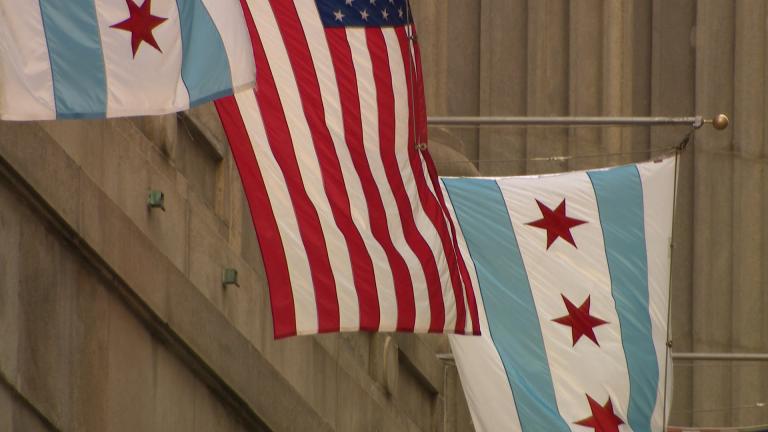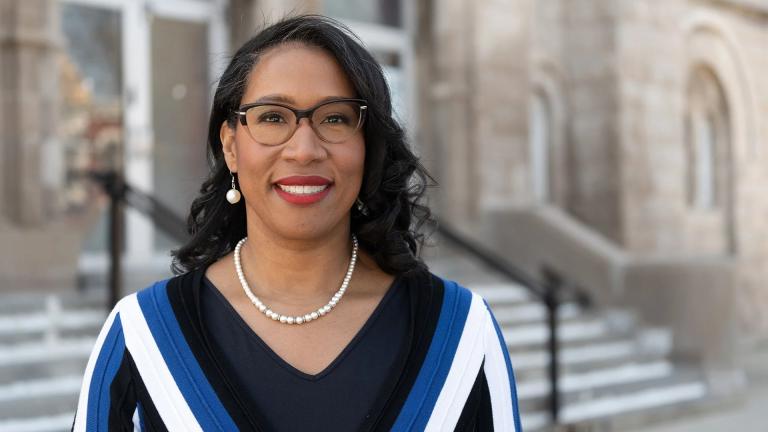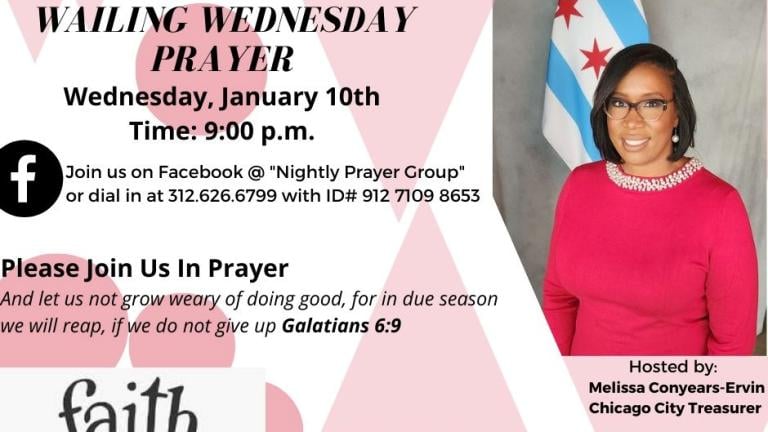 (WTTW News)
(WTTW News)
A proposal designed to overhaul Chicago’s ethics rules and finally put an end to the deluge of corruption at City Hall will face a crucial test on Friday when a key city panel reviews a revised measure produced after negotiations with Mayor Lori Lightfoot.
The Ethics and Government Oversight Committee is set to meet at 3 p.m. Friday to consider a reworked version of the proposal authored by Ald. Michele Smith, the panel’s chair, and backed by the Chicago Board of Ethics. With the committee’s endorsement, a final vote could come on Wednesday.
The revised measure keeps Smith’s proposal to hike the maximum fine for violating the city’s ethics ordinance from $5,000 to $20,000 in place, according to records obtained by WTTW News.
“This is a good step forward,” Smith told WTTW News, saying it will put an end to the “I got a guy at City Hall” mentality that has helped breed decades of deeply entrenched corruption. “There is a lot of good in this.”
Smith’s proposal had been stalled for nearly three months after it ran into a brick wall of opposition from Lightfoot. The mayor supports the revised ordinance, increasing the odds it will advance Friday.
“It takes time,” Smith said. “It really is a process.”
Chicago Board of Ethics Chair William Conlon said June 13 the package of reforms should be “swiftly” passed by the City Council and signed into law. Neither Conlon nor Chicago Board of Ethics Executive Director Steve Berlin declined to comment before Friday's hearing.
Bryan Zarou, the director of polict for the Better Government Association, said the revised measure is weaker than the original.
“This is still a strong set of updates, though not as effective in cleaning up city government as the original language,'' Zarou said in a statement.
The measure expands the number of companies doing business with the city that would be limited to contributing $1,500 annually to include those doing business with the city's sister agencies, including the Chicago Transit Authority, the Chicago Public Schools and Chicago Housing Authority.
The proposal directs the city’s Department of Assets, Information and Services to compile a list of those contractors, to allow Chicago elected officials to comply with the limits, Smith said.
However, the revised measure does not expand the limit on campaign contributions to subcontractors with the city’s sister agencies as Smith originally proposed, since there is no database of those firms and it does not appear possible to create one, Smith said.
The measure set to be considered Friday would expand the city’s rules against nepotism to prevent city officials or employees from taking any action that benefits their domestic partner or relatives and prohibit firms from hiring relatives of city officials to skirt the rules.
But those elected officials will not have to physically leave the City Council chambers or the virtual meeting when that item is discussed and voted on. Instead, the official will have to file details about the conflict of interest with the Chicago Board of Ethics within 24 hours. That information will be made public, according to the revised measure.
That proposal got a significant amount of push back from members of the City Council, who did not want to have to leave the chambers or virtual meeting and perhaps miss a subsequent vote, Smith said. This provision’s removal marks the second time since 2019 the City Council has rejected that proposal, which has the support of the Chicago Board of Ethics.
The revised proposal keeps in place a ban on former alderpeople who work as lobbyists from the floor of the Council Chambers. That provision appears directed at former Ald. Joe Moore (49th Ward) who works as a lobbyist and has been a frequent presence at meetings since his defeat in 2019.
At the mayor’s request, three provisions were added to the revised measure that would appear to benefit two of the mayor’s allies who have found themselves in the crosshairs of the Chicago Board of Ethics.
While city law prohibits the use of city property for political purposes, the measure would permit “incidental” use of the city seal in a video or photograph that has a disclaimer attached that it is not an official city of Chicago production.
The Board of Ethics found probable cause that Ald. Nicholas Sposato (38th Ward) violated that law by appearing in photographs used on his social media page on city property while dressed in a firefighter’s turnout coat while gripping the handle of a Chicago Fire Department fire engine with the department’s official logo clearly visible.
However, the board agreed not to punish Sposato after he promised to follow the rules in the future. The Jefferson Park resident who filed the official complaint has repeatedly told city ethics officials Sposato is continuing to flaunt the law.
In addition, the revised measure allows elected officials to host donation drives for charitable organizations by placing bins in their offices and city property. Sposato has long urged his colleagues to change the city’s law to clarify the issue of whether events like toy drives at Christmas were acceptable.
The revised proposal would also alter the Ethics Board’s ability to decide there is probable cause to believe the city’s Governmental Ethics Ordinance has been violated and levy fines, according to the regulations that govern the board.
While the board refers complaints that require a probe to the city’s inspector general, it can act in cases that do not require a “factual investigation” and where an ethics violation is apparent. The board’s rules require the elected official’s name be kept confidential.
The board made that determination in Sposato’s case in April and made a similar determination in June in a case involving “campaign-related content in an official ward newsletter, emailed from a cityofchicago.org email address, contrary to clear board guidance on the improper mixing of political and official content in newsletters and websites that was sent to all city elected officials in January 2020.”
Ald. Derrick Curtis (18th Ward), a Lightfoot ally, sent an email on June 2 to residents of his Far South Side ward that included an advertisement for the mayor’s re-election kickoff event at the Starlight Restaurant on June 8. That newsletter included an image that invited 100 residents to reserve a spot at a “supporter breakfast” by contacting Curtis’ ward office on a first-come, first-served basis.
Curtis’ newsletter also included information about official ward events, including community meetings and how to obtain help paying utilities.
WTTW News was the first to report the possible ethics violations by Sposato and Curtis.
The revised proposal would require the board to notify the elected official in writing at least 10 days before the Board of Ethics could find probable cause that they violated the law, giving them a chance to refute the allegation and avoid public embarrassment.
Smith declined to comment on that section of the proposal to WTTW News.
The package of changes would also require independent contractors who work for members of the City Council to complete a statement of financial interest and undergo ethics training. A similar measure was defeated in 2017 after it caused an outcry.
The proposal released by Smith also clarifies the city’s rules on lobbying to exempt Chicagoans who urge their alderperson to support a measure with a nonprofit advocacy organization.
If approved by the Chicago City Council, the measure would be the second major overhaul of the city’s Governmental Ethics Ordinance since Lightfoot took office, after pledging during the campaign to root out the corruption that has led to the conviction of 37 members of the Chicago City Council since 1969.
Contact Heather Cherone: @HeatherCherone | (773) 569-1863 | [email protected]





